READY TO GET STARTED?
REQUEST A FREE ESTIMATE
Fill out the form below or call (888) 466-7849 for a free, no-obligation estimate.
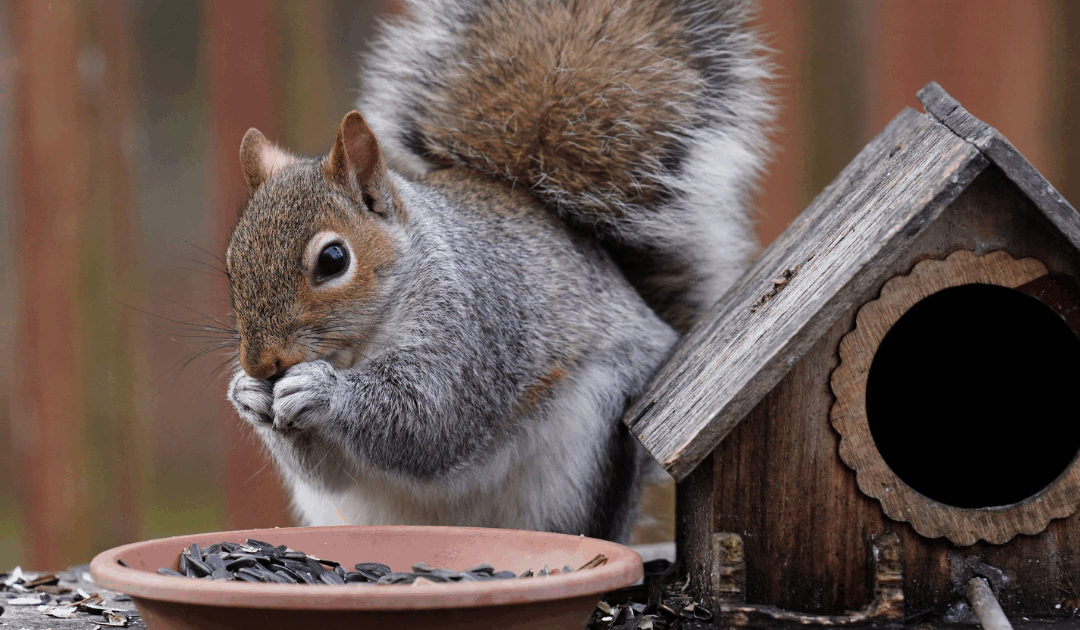
Broward County’s year-round warmth and lush vegetation make it a haven for squirrels. While they can be entertaining in parks, these agile climbers are less welcome when they invade attics, damage gardens, or chew through home structures. By understanding squirrel behavior and using strategies tailored to South Florida, homeowners can protect their property while maintaining balance with the local environment.
South Florida is home to several squirrel species, with gray squirrels and fox squirrels most common around residential areas. They use power lines, fences, and trees as travel routes and often seek shelter in attics, sheds, or crawl spaces.
Because Broward’s climate keeps squirrels active all year, the risk of property damage, noise, and potential health concerns is ongoing. Females typically have two litters a year—late winter and mid-summer—making these peak times for activity.
Early detection helps prevent costly repairs. Common signs include scratching or scampering in attics, especially at dawn or dusk, chewed roof edges or soffits, damaged screens, and gnaw marks on wood or wires. Outdoors, you may notice disturbed bird feeders, dug-up flower beds, or plants stripped of fruit and vegetables.
Remove attractants that encourage squirrels to linger. Trim branches at least six feet from the roof, clear fallen fruit and nuts promptly, and relocate or squirrel-proof bird feeders.
Cover vents, chimneys, and other openings with hardware cloth or metal screening, using mesh smaller than one inch. Seal gaps with caulk, foam, or metal patches, and reinforce vulnerable roof edges with flashing.
Sprinkle cayenne pepper or hot sauce around problem areas, or place cotton balls soaked in peppermint, eucalyptus, or citrus oil near entry points. Predator scents, like fox or coyote urine, can also discourage squirrels.
Use lightweight row covers, plant squirrel-resistant flowers like marigolds and alliums, or create decoy feeding spots away from your home and garden.
Check attics and roofs regularly for signs of damage or nesting materials. Pay special attention after storms, which can create new entry points. Motion-activated cameras can help track activity patterns.
Install chimney caps, vent guards, and tree banding to block climbing routes. These measures reduce access without harming wildlife.
If removal is necessary, use humane live traps with appropriate bait, following Broward County regulations on relocation. Complex situations may require trained wildlife experts who understand local squirrel behavior.
Encourage natural predators, and coordinate with neighbors for community-wide prevention efforts. Consistent approaches reduce squirrel pressure across the area.
Broward squirrel control works best with ongoing attention—seasonal inspections, refreshed deterrents, and regular maintenance of exclusion methods. By combining habitat changes, physical barriers, and humane deterrents, you can keep squirrels from becoming long-term houseguests while still protecting the wildlife that makes South Florida unique. For stubborn or recurring issues, experienced pest control professionals can help ensure your home stays squirrel-free. Contact pest control near you for a free quote!
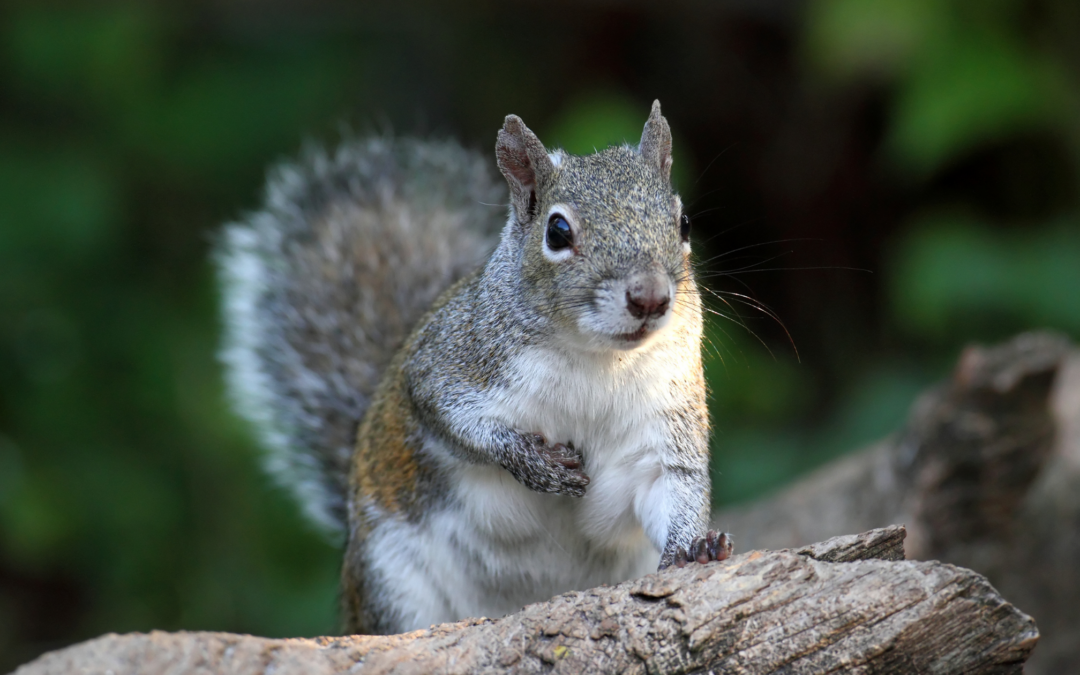
Squirrels are a common sight in Georgia, often seen scampering through trees and parks. While they can be charming to watch, these bushy-tailed rodents can become a significant nuisance when they invade your home and yard. This blog will discuss the common types of squirrels in Georgia, the hazards they pose, and effective squirrel control methods to deter them. We will also provide tips on what to do if you find a squirrel inside your home.
Georgia is home to several species of squirrels, but the most common types that homeowners encounter are the Eastern Gray Squirrel, the Fox Squirrel, and the Southern Flying Squirrel.
While squirrels may seem harmless, they can cause a range of problems for homeowners:
Discovering a squirrel inside your home can be startling. Here’s what you should do:
Preventing a squirrel infestation is much easier than dealing with one. Here are some effective strategies for squirrel control:
While DIY methods can be effective for minor squirrel issues, professional wildlife control services are recommended for larger infestations or if the squirrels have caused significant damage. Wildlife control companies have the expertise and equipment to safely and humanely remove squirrels from your home. They can also provide advice on preventing future infestations and repair any damage caused by the animals.
If you’re facing a squirrel problem, don’t hesitate to search for “squirrel removal near me” to find a reliable wildlife control company in Georgia. Professional services ensure that the job is done thoroughly and humanely, providing peace of mind and a squirrel-free home.
Squirrels, while fascinating creatures, can become problematic when they invade our homes and yards. By understanding the common types of squirrels in Georgia and the potential hazards they pose, homeowners can take proactive steps to prevent infestations. Remember, effective squirrel pest control involves a combination of exclusion, deterrents, and, if necessary, professional wildlife removal. Keep your home safe and secure by addressing any signs of squirrel activity promptly and maintaining preventive measures year-round.
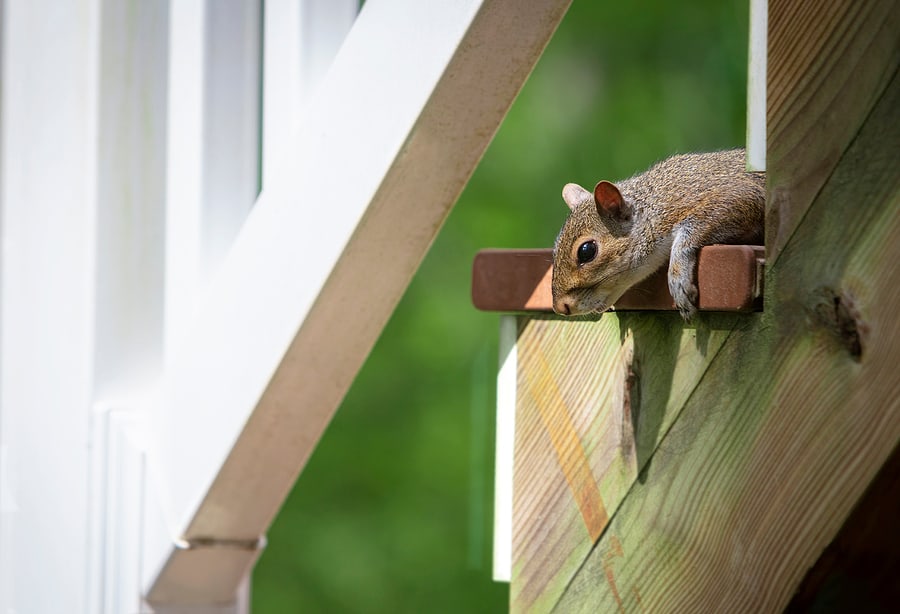
While many of us deem squirrels as cute and cuddly, the moment they start to invade our homes, we soon lose that fondness for wanting them around. As the weather begins to cool down, these pests will look towards houses, specifically attics, to create a nest and keep warm. Once inside, squirrels can cause major damage, such as chewing on electrical wires, destroying insulation, and leaving behind their droppings and urine. Luckily, there are a few ways to deter these creatures from your house. Check out these squirrel control tips you can use at home.
Trees and limbs can give squirrels easy access to your roofline. To prevent squirrels from gaining access, make sure that your tree limbs are cut back and trimmed away from the roofline. By cutting these access points, it’s an easy way to keep them away from your attic, chimneys, and any open holes or gaps leading inside the house.
Cleaning up around your home can also help to prevent these squirrels from entering your property. Squirrels are omnivores, meaning they will eat both meat and plants, including fruits, nuts, and small insects. To prevent them from scavenging for food around your house, make sure to dispose of garbage regularly while always using a sealed container. If you have any fruit trees on your property, try to look out for any ripe fruit and dispose of or pick them promptly.
Getting rid of squirrels can be difficult, and it can often take a trained professional who has the expertise to help prevent and eliminate them. If utilizing preventative measures fails and squirrels have invaded your property, consider reaching out to your local wildlife control company where they can provide you with the most effective trapping and removal methods for these rodents.
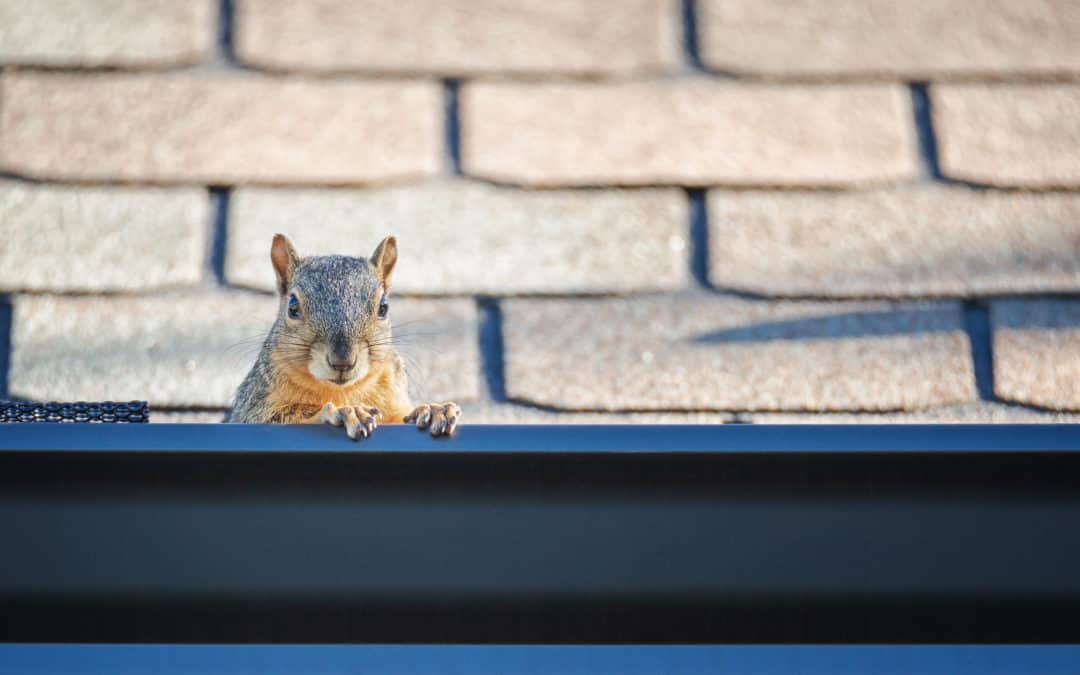
Squirrels are classified as rodents making them distant cousins to other more popular species like rats and mice. Like their rodent counterparts, squirrels can cause damage to your home and spread diseases to you and your family. Squirrels can access your home through small openings such as open doors and windows, down chimneys, through fireplaces, and through holes or openings in roofs or eaves. Once inside, these pests can chew through wires, siding, and insulation, causing costly damage and putting you at risk of fire. To keep these nuisance pests out, here are five ways to deal with a squirrel in your house.
The first step in dealing with squirrels is to figure out where they are getting into your home. Squirrels only need a small opening to squeeze through and once they are inside, getting them out can be difficult. Perform a thorough inspection of both the interior and exterior of your home, checking for holes, openings, and gaps that squirrels and other pests can use to gain access.
Once you’ve identified where the squirrels are getting in, seal it up to prevent them from using it again. If there is no presence of squirrels inside your home, go ahead and seal up ALL of the entry points you find. If there is a squirrel present, make sure to leave one entryway open so they have a way to get back out. Cover this last opening with a single sheet of newspaper. If it is still intact 2 to 3 days after you stop hearing the squirrel, it is safe to go ahead and seal it up. Make sure doors and windows are covered with screens and properly fit to your home. Place wire mesh over chimneys and open vents. Use caulk, steel wool, or other appropriate materials to seal any other openings you find.
Squirrels will often not leave your home on their own, especially if they have already given birth to a litter. To avoid this, try to drive the squirrels out as soon as you notice their presence. Playing loud music or keeping the lights on are both good ways to repel squirrels. If there is a squirrel present, try to avoid the area as you can spook them, causing them to flee to another part of the house, usually causing even more damage.
As a last resort, you can use traps to get rid of squirrels in your home. There are several different types of traps you can use. Live capture traps are a box-type trap that allows you to capture the squirrel alive and then release it outside. These traps have to be checked frequently and some states even require permits to use them. Kill traps are also box-type traps but eliminate the squirrel quickly and safely. Body-gripping traps can be used outside known entry points to capture the squirrels as they go in and out of your home.
As with any other type of pest control, prevention is key to keeping squirrels and other nuisance pests out of your home. The first step, as mentioned above, is to seal up any entry points around your home. Trim any overhanging trees that squirrels and other pests can use to access your roof, windows, and attic. Use traps as necessary.
If you have a problem with squirrels or any other pests, contact a professional pest control company who can help identify the type of pest you are dealing with, find potential entry points, and help prevent future infestations.
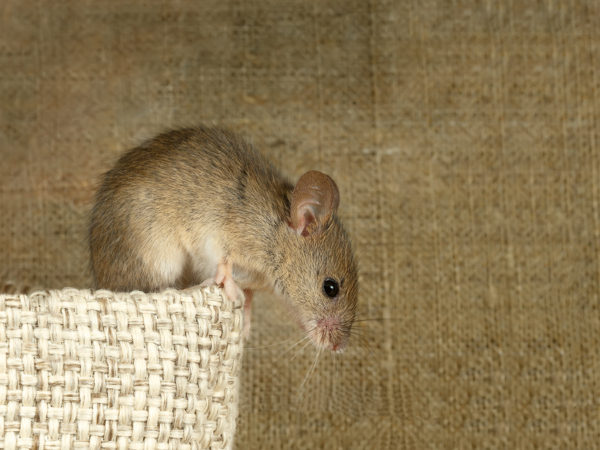
Rodents are one of the most common pests that come into our homes in the winter. Rodents are in search of 3 things – food, water, and shelter – and they can find all 3 of them in and around our homes. Squirrels, raccoons, rats, and mice are some of the most frequently seen rodents in the colder months. Rodents can cause significant damage to property and can also be a big health risk to humans. Prevention is critical in managing and preventing an infestation of rodents. Check out these tips to keep the rodents out this winter: